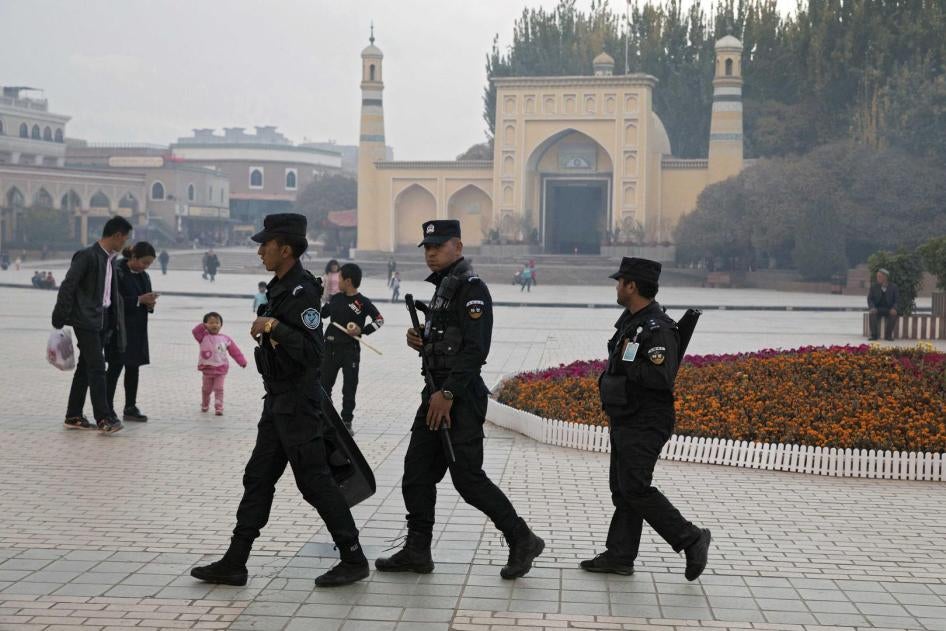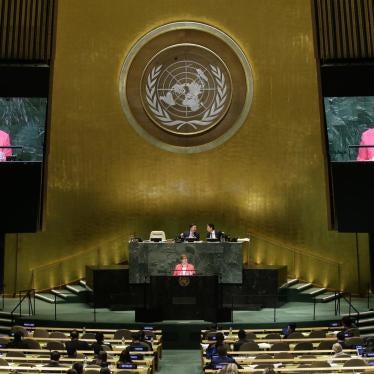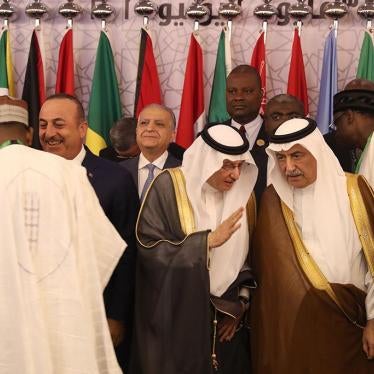Mass arbitrary detention, forced political indoctrination, restrictions on movement, intrusive surveillance, and religious oppression. The human rights violations in Xinjiang today are of a scope and scale not seen in China in decades.
In Xinjiang, approximately one million people out of a Turkic Muslim population of 13 million are arbitrarily detained without any legal process, subjected to ill-treatment, and sometimes tortured. Family members are separated, including parents from young children. People are held for weeks or months at a time in closely guarded camps, forced to learn Mandarin, sing pro-Chinese Communist Party songs, and pledge loyalty to the Chinese state. The Guardian has reported how more than a dozen Australian residents have been detained in those camps.
Outside the camps, Uyghurs and other Turkic Muslims are also denied their most basic rights, including privacy, freedom of movement, and the right to leave the country. Even Australians like a 2-year-old boy, Lutfy, remain trapped in Xinjiang. Lutfy has never met his father, Sadam, who lives in Sydney.
The authorities have deployed extraordinary surveillance technologies to track every aspect of people’s daily lives in Xinjiang, picking out those it mistrusts, and subjecting them to extra scrutiny. Human Rights Watch recently reverse-engineered a police surveillance app, which gathers extraordinary amounts of information about everyday lawful behavior of Turkic Muslims in Xinjiang—and investigates and sometimes punishes them for it. The app was developed by a company owned by the China Electronics Technology Group Corporation (CETC), a major state-owned military contractor in China.
This app is just one part of an extensive collection of abusive surveillance technology including for the enforced and intrusive collection of biometric data from children and adults in Xinjiang and the use of AI-enabled facial and voice recognition technologies to monitor people. In recent alarming revelations, two Australian universities seem to be partnering with companies and researchers involved in building the tools of repression in Xinjiang.
The Chinese government has either denied that the abuses are taking place or tried to justify its conduct as part of a national counterterrorism strategy. The “Strike Hard Campaign against Violent Extremism” began in Xinjiang in 2014. But the level of repression increased dramatically after Communist Party Secretary Chen Quanguo relocated from the Tibet Autonomous Region to assume leadership of Xinjiang in late 2016.
China has faced little political cost for its abusive Xinjiang campaign despite its far-reaching consequences. China’s global influence and economic clout have largely spared it from criticism by other governments. But that is starting to change.
On July 10, Australia joined 21 other countries in an unprecedented joint statement on China at the United Nations Human Rights Council (HRC). The countries expressed concern about reports of large-scale arbitrary detention, widespread surveillance, and other violations against Uyghurs and other Muslims in Xinjiang. They urged China “to allow meaningful access to Xinjiang” for UN and independent international observers, and asked the high commissioner to keep the Human Rights Council regularly informed on the situation.
But more action is needed. The UN joint statement is an important first step, but not a single member of the 57-country Organisation of Islamic Cooperation (OIC), which has been openly critical of Myanmar’s abuses against Rohingya Muslims, joined the statement. China organized a pathetic counterstatement signed by a rogues’ gallery of rights-abusing countries such as North Korea and Saudi Arabia.
The next step is for concerned countries to rally broader support. Australia should work with countries in the region, such as Indonesia and Malaysia, to generate follow-up action at the UN. Independent international monitoring of the situation in Xinjiang and reporting back to the Human Rights Council will be crucial.
Australia and other concerned governments should also impose targeted sanctions, including visa bans and asset freezes, against the Xinjiang Party Secretary, Chen Quanguo, and other senior officials linked to abuses in the “Strike Hard Campaign.” The Australian government should vigorously demand the immediate release of any Australians or their relatives arbitrarily held in Xinjiang.
The Australian government should work closely with the Australian Uyghur community to reunite non-citizen family members as well as monitoring and punishing any Chinese threats, harassment, and surveillance of these communities in Australia. And Australian universities need to have sufficient safeguards in place to ensure that any collaborations with Chinese companies or institutions will not contribute to human rights abuses in China.
Australia media have revealed how Australian players have been complicit in China’s campaign of repression, even while Canberra is helping call that out at the Human Rights Council. It’s critical for Australia to get—and stay—on the right side of human rights, in joining others in demanding accountability for gross violations in Xinjiang.










